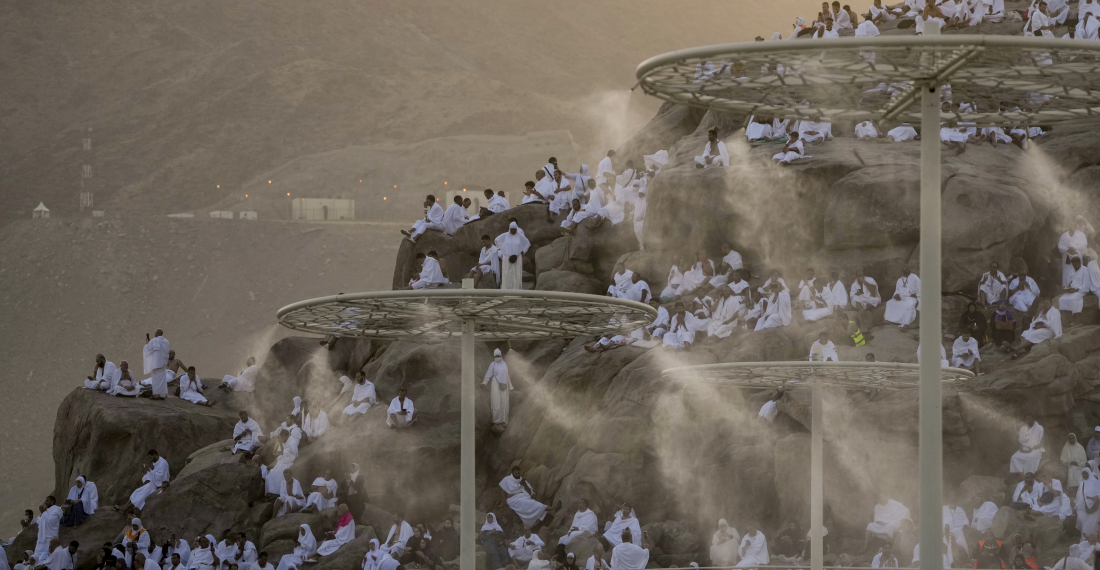Hundreds of pilgrims who died of extreme heat during this year's Hajj were not officially registered with the Saudi authorities (the Hajj is an annual Islamic pilgrimage to Mecca, Saudi Arabia, the holiest city for Muslims). As a result, many pilgrims were unable to access basic services such as air-conditioned buses and cooling tents. This situation highlights a growing challenge for Hajj organisers in the face of climate change: the requirement for official permits to access these services raises concerns that unregistered pilgrims may increasingly face life-threatening heat exposure. In addition, the high cost of official Hajj packages is leading some Muslims to seek cheaper, unofficial alternatives that do not include the necessary permits, taking advantage of relaxed restrictions on other types of Saudi visas. The lack of permits for unregistered pilgrims is hampering the provision of services and care, according to Colonel Talal bin Shalhoub, the security spokesman for the Saudi Ministry of Interior, in an interview on Saudi al-Arabiya television. Critics argue that all pilgrims should be protected from extreme heat, regardless of their registration status, and claim that authorities have cracked down on unauthorised participants this year.
"This focus on registered versus unregistered is a red herring ... If you are there and you need help, you should be able to get it," said Khalid al-Jabri, a doctor who used to work for the Saudi security agency overseeing the Hajj and is now part of the Saudi opposition in exile. Saudi Arabia's international media office did not immediately respond to requests for comment. Health Minister Fahad Al-Jalajel said health services were provided to unregistered pilgrims on 141,000 occasions during the hajj. However, he acknowledged that many unregistered pilgrims had to walk long distances in direct sunlight without adequate shelter, and noted that 83% of the 1,301 deaths were among unregistered pilgrims. Some unregistered pilgrims reported walking in temperatures exceeding 50 degrees Celsius, while most registered pilgrims travelled in air-conditioned buses. Pilgrims reported that Saudi officials regularly checked buses to ensure that only registered pilgrims were on board. Nearly two million pilgrims participated in this year's Hajj, following the rituals taught by the Prophet Muhammad 14 centuries ago.
The exact number of unauthorised pilgrims is unknown, but Saudi public security director Mohammed bin Abdullah al-Bassami said this month that 171,587 people were deported without permits. Heat-related deaths during the Hajj are nothing new, but climate change is making the pilgrimage increasingly dangerous. A 2021 study found that a 1.5°C rise in global temperatures would quintuple the risk of heat stroke for Hajj pilgrims. The world is projected to reach this level of warming in the 2030s. "It's a situation that's only going to get worse over time," said Elfatih Eltahir, co-director of the Jameel Observatory and a professor at MIT, who published a study on the dangers of heat stress for Hajj pilgrims in 2019. Despite these alarming climate projections, Saudi Arabia aims to increase the number of religious tourists, targeting 30 million pilgrims per year for Hajj and Umra by 2030, as part of its strategy to diversify the economy away from oil dependency. In 2019, Hajj and Umra generated about $12 billion annually for Saudi Arabia, according to official data. The high cost of Hajj tours, which can range from $5,000 to $10,000 per person, has led many to opt for unofficial packages. "Finances are... a big factor," said Khaled El Sherbini, owner of an Egypt-based travel agency, noting that an Egyptian could make the Hajj "unregistered" for 30,000 to 40,000 EGP ($622-$829), much less than an official package that costs around 300,000 EGP ($6,222). In 2018, a Hajj package would have cost around $3,000."The rich can afford luxury apartments and the poor come in tents," said Irhan al-Alawi, executive director of the Islamic Heritage Research Foundation.






